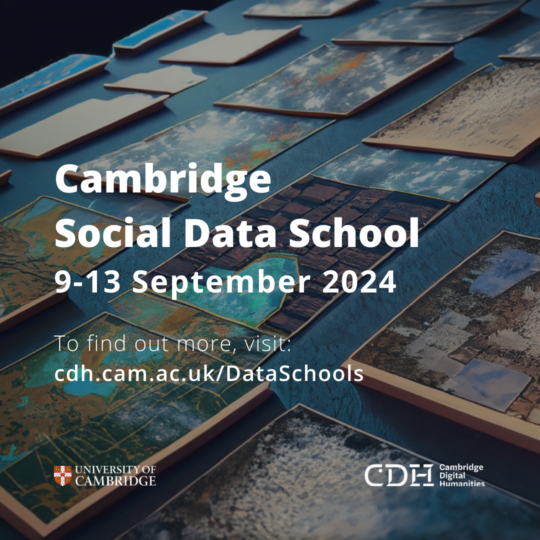| 26 Oct 2020 - 23 Nov 2020 | All day | Online | |
- Description
Description
Convenor:
Professor Caroline Bassett (Director, Cambridge Digital Humanities) and Dr Anne Alexander (Director of Learning, Cambridge Digital Humanities).
This CDH Guided Project series which also includes a Methods Workshop will explore the generation of ‘synthetic’ texts using neural networks.
The release of OpenAI’s GPT-2 and GPT-3 language models in 2019 and 2020 has shown that predictive algorithms trained on very large general datasets can generate ‘synthetic’ texts, perform machine translation tasks, rudimentary reading comprehension, question answering and summarisation automatically without needing large amounts of task-specific training. These ‘ghostwritten’ texts have provoked wide attention in the media.
Researchers have experimented with prompting GPT-3 to write short stories, answer philosophical questions and apparently propose potential medical treatments – although GPT-3 had some difficulty with the question “how many eyes does a horse have?”. The Guardian ‘commissioned’ an op-ed from GPT-3.
Through interactive hands-on sessions and demonstrations we will explore synthetic text production and look at how ideas about the distinction between ‘fact’, ‘fiction’ and ‘non-fiction’ are shaping the reception of this emerging technology. Our aim is to stimulate deeper critical engagement with machine learning by humanities researchers and to encourage more public debate about the role of AI in culture and society.
We invite applications from early career researchers and others at the University of Cambridge to join a small project team for four online sessions during the Guided Project phase in Oct-November.
Participants will need to commit to joining the live sessions and to set aside at least 3-4 hours work on a small-scale individual project during the course. We are interested in assembling an interdisciplinary group of researchers drawing on insights from across humanities, social science and technology disciplines. Prior knowledge of programming, computer science or Machine Learning is not required.
Format:
The course will be delivered online, with live sessions taking place on Microsoft Teams. We will be using Google Drive for collaboration and access to course materials (you will be able to use your University Google Drive account for this).
As the course will use primarily cloud-based computing (even for high-performance computing applications), no specialist computing hardware or specific operating system or software is necessary.
Time commitment and session dates
- Guided Project session 1: 26 October, 2-3.30pm
- Guided Project session 2: 9 November, 11.30-1pm [break 1-2pm]
- Guided Project session 3: 9 November, 2-3.30pm
- Guided Project session 4: 23 November, 2-3.30pm
Participants in the Guided Project will also be invited to contribute to a Methods Workshop on 7 December. This will demonstrate methods in synthetic text generation to a wider group and provide an opportunity to report back on the outcomes of the experimentation during the Guided Project. (However attendance at the Methods Workshop is optional for Guided Project participants).
- Methods Workshop session 1: 7 December, 11.30-1pm
- Methods Workshop session 2: 7 December, 2-3.30pm
Eligibility:
Early career researchers (PhD students and postdocs) at the University of Cambridge have priority for this Guided Project. Other University of Cambridge staff and graduate students are also welcome to apply.
Register to and complete the application form.





